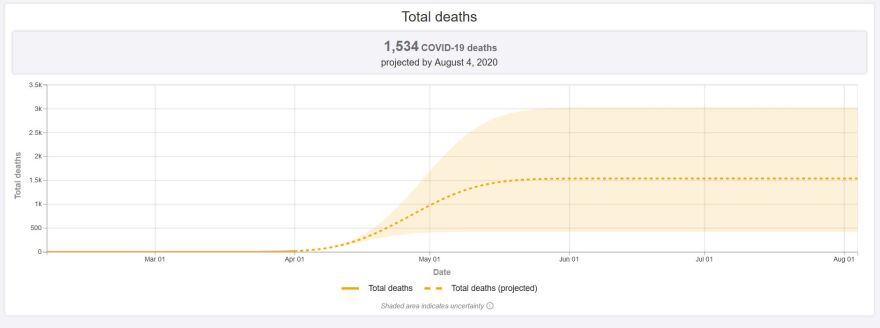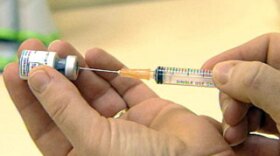State leaders have not given estimates about how many people across North Carolina they suspect have contracted COVID-19, and instead have focused on the number of positive cases due to the illness.That's in part because testing capacity around the state − and the country − remains a problem and officials have had to focus mostly on high-risk patients, heath care workers, or those who show signs of having the virus. As of Thursday morning, 28,679 tests have been administered throughout North Carolina, according to estimates published daily by the N.C. Department of Health and Human Services.
State Epidemiologist Dr. Zack Moore, DHHS Secretary Dr. Mandy Cohen and Governor Roy Cooper were asked in three successive press briefings about how many people in North Carolina they suspect have been infected with the coronavirus, but in every case, the state leaders offered only vague responses about how they plan to use models to make that determination in the future.
Focusing the available tests on limited populations is good from a health care perspective, but bad from a statistical modeling standpoint, according to Alun Lloyd, a N.C. State University mathematical biologist.
"I think the limited number of tests has been more problematic in that those tests have – correctly – been used to prioritize minimizing healthcare-associated transmission, vulnerable populations and key workers, etc., leading to us having a sample that doesn't reflect the population at large," Lloyd said. "This makes it difficult to figure the true number of cases."
DHHS reported 1,857 confirmed cases and 16 deaths as of Thursday morning, but Moore said that figure would almost certainly continue to increase.
"I think the bad news is that we have to acknowledge that we are just at the beginning," he told reporters on Monday. "Every indication is that this is really ramping up now and we are in what we would call the acceleration phase of the pandemic here in North Carolina. So we certainly have not peaked."

State health lab, private companies offer tests, though quantities remain limited
The COVID-19 testing that has happened has been carried out in a variety of ways. The N.C. State Laboratory of Public Health has administered its test, using a kit developed by the Centers for Disease Control and Prevention, but has limited that test to health care providers and high risk populations. The tests, and especially the personal protective equipment used by providers to administer the tests, have been in limited supply, so DHHS has limited testing in order to ration equipment.
Private labs also offer tests, notably LabCorp, an international diagnostics company with massive operations in North Carolina. But it handles kits from around the world and has seen a backlog, so test results are sometimes not returned for days.
UNC Health has begun testing using a kit developed by clinical microbiology experts at the UNC Medical Center and UNC School of Medicine. It is based on the World Health Organization (WHO) assay. Across North Carolina's deep biotechnology sector, some companies have also developed COVID-19 tests. Health experts hope these new tests can relieve the backlog at private labs, and ease restrictions on who is being tested.
While testing lags, models show wide margins of possible outcomes
Researchers at the University of Washington have modeled COVID-19 projections for every state. But they come with wide margins of possible outcomes. For North Carolina, for instance, the projections estimate 1,597 deaths, but list a possible range of between 389 and 4,820. In that model, the peak usage day for North Carolina's health systems will be April 27, still almost a month away.

"Modeling is not a crystal ball," Cohen said Wednesday. "It's only as good as the data we have at the moment that we can feed into it, and as good as the assumptions any one of those models makes. And all of this is so new. We don't have the perfect data; we don't know the perfect assumptions; and we aren't going to know with precision how things are going to play out."
Cohen said the state is working with data scientists around the state to input factors unique to North Carolina in order to determine more accurate predictions.

But it's precisely because of the lack of precise figures that officials have pleaded with North Carolinians to continue to practice safe social distancing. Because the extent of the spread is unknown, it's impossible to tell who might be carrying the virus.
"We are seeing now that there is community spread. Folks don't know where they picked it up from," Cohen said earlier this week, again stressing that there is no vaccine or treatment for COVID-19, meaning that preventing spread is the only defense. "I can't stress it enough. Your actions matter. Staying home matters. Staying home will save lives."







